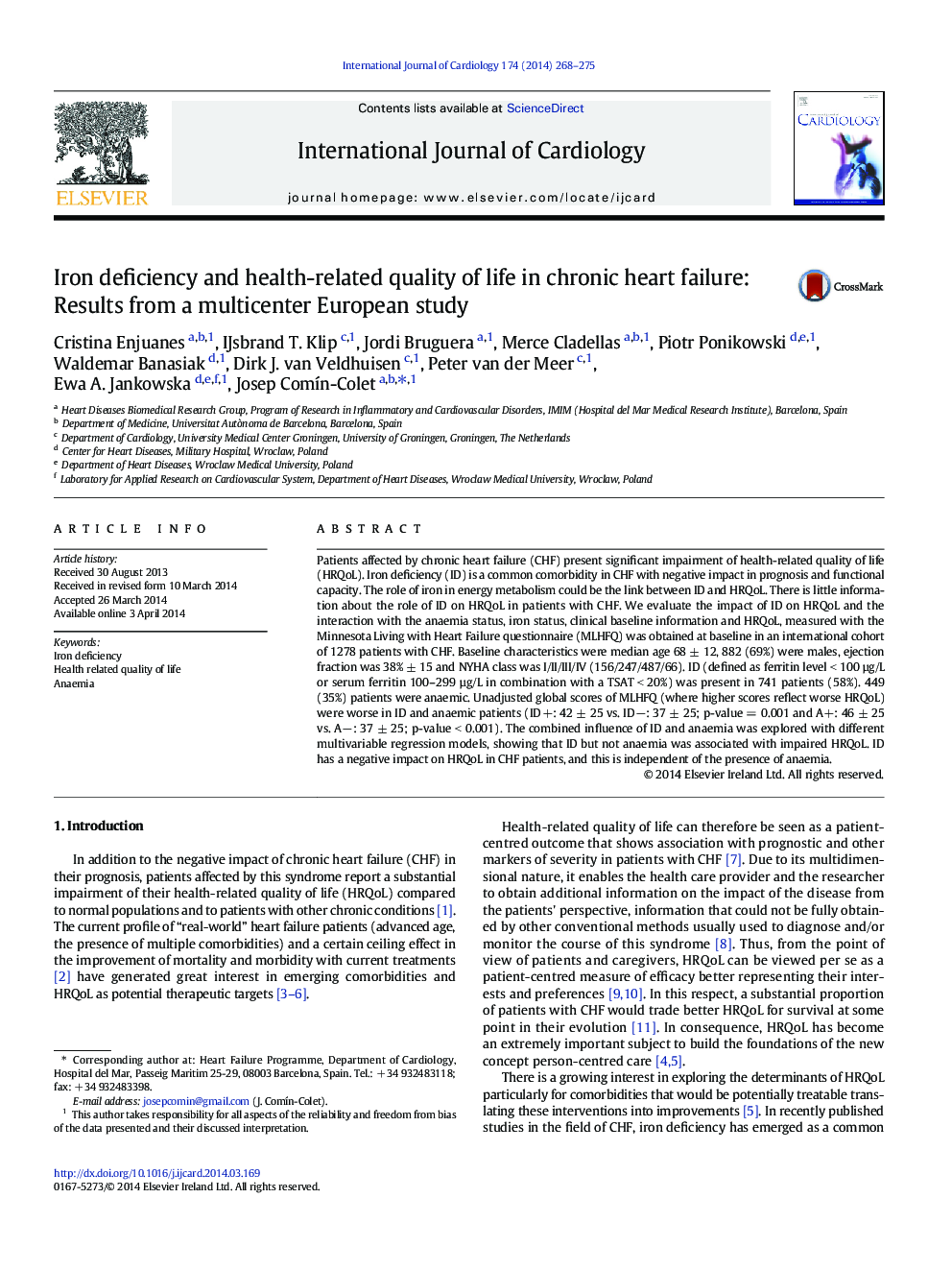| Article ID | Journal | Published Year | Pages | File Type |
|---|---|---|---|---|
| 5970175 | International Journal of Cardiology | 2014 | 8 Pages |
Patients affected by chronic heart failure (CHF) present significant impairment of health-related quality of life (HRQoL). Iron deficiency (ID) is a common comorbidity in CHF with negative impact in prognosis and functional capacity. The role of iron in energy metabolism could be the link between ID and HRQoL. There is little information about the role of ID on HRQoL in patients with CHF. We evaluate the impact of ID on HRQoL and the interaction with the anaemia status, iron status, clinical baseline information and HRQoL, measured with the Minnesota Living with Heart Failure questionnaire (MLHFQ) was obtained at baseline in an international cohort of 1278 patients with CHF. Baseline characteristics were median age 68 ± 12, 882 (69%) were males, ejection fraction was 38% ± 15 and NYHA class was I/II/III/IV (156/247/487/66). ID (defined as ferritin level < 100 µg/L or serum ferritin 100-299 µg/L in combination with a TSAT < 20%) was present in 741 patients (58%). 449 (35%) patients were anaemic. Unadjusted global scores of MLHFQ (where higher scores reflect worse HRQoL) were worse in ID and anaemic patients (ID +: 42 ± 25 vs. IDâ: 37 ± 25; p-value = 0.001 and A+: 46 ± 25 vs. Aâ: 37 ± 25; p-value < 0.001). The combined influence of ID and anaemia was explored with different multivariable regression models, showing that ID but not anaemia was associated with impaired HRQoL. ID has a negative impact on HRQoL in CHF patients, and this is independent of the presence of anaemia.
